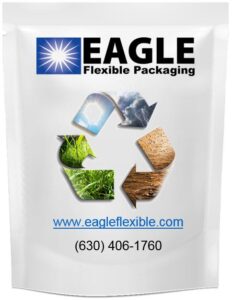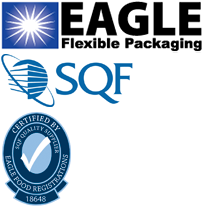Packaging and Plastic Waste Reduction
The days of excessive and wasteful plastics are numbered in a number of countries: Scotland, Costa Rica, Taiwan, and even the entire EU will ban plastic drinking straws, beverage cups, shopping bags, and other items between 2019 and 2030. Never before has the consumer (and social) cry been louder to reduce such plastic waste that has been a major marine pollutant, littering beaches and endangering ocean life.
 The quick-service and packaging industries can be big contributors to single-use and over-produced plastic waste. While many takeout needs can be met with paper-based or other biodegradable or recyclable materials, commercial packaging solutions often need to hold up for the longer term, such as on store shelves, and in pantries or other home storage. But improvements in and wider adoption of flexible packaging solutions has provided a means to meet manufacturers’ (and consumers’) needs for durable and useful packaging while reducing its footprint and increasing sustainability.
The quick-service and packaging industries can be big contributors to single-use and over-produced plastic waste. While many takeout needs can be met with paper-based or other biodegradable or recyclable materials, commercial packaging solutions often need to hold up for the longer term, such as on store shelves, and in pantries or other home storage. But improvements in and wider adoption of flexible packaging solutions has provided a means to meet manufacturers’ (and consumers’) needs for durable and useful packaging while reducing its footprint and increasing sustainability.
Consumer Demand
While the imminent bans overseas are not currently on the U.S. agenda, waste reduction and sustainability are important issues for American consumers, who are demanding corporate responsibility and sustainable products and packaging. U.S. consumers reward responsible companies with their business—especially choosing such companies over wasteful competitors (and even those who avoid taking a stand). To meet the fast-paced lifestyles of many consumers, responsible (and transparently informative) packaging must also provide convenience: portable, microwaveable, portioned, resealable, and protective are all useful features, either for eating or for storing.
Sustainable Solutions
Sustainability is more than just recyclability (though recyclable packaging is an important solution). In addition to using recyclable plastics, flexible packaging also addresses consumer environmental concern by using less packaging material, offering compostable and bioplastic options, and often costing less (using less energy and fewer resources) to both produce and ship.
Supermarket and Private Label Growth
As chain supermarkets make up more of the market share, packaging needs are increasing at the corporate level for in-store produce and meats. Private label products are also growing in popularity, with large companies like Amazon entering the private label marketplace as well. As these packaging needs arise in a climate of environmental responsibility, it’s a great opportunity for retailers and manufacturers alike to choose sustainable packaging.
Pouch Production
Flexible pouches are growing both in popularity and production capacity. Machinery capabilities have improved to meet the growing demand for this packaging format. Production speeds make it possible to not only fulfill supply orders for manufacturers, but get products to the marketplace faster, and in a waste-reducing format.
Plastic waste reduction is not only the popular choice, but the environmentally responsible thing to do. Flexible packaging offers several advantages to meet the sustainability goals of manufacturers and consumers alike. Now is the time to migrate from traditional packaging ahead of legislation—and to stand out in a crowded retail landscape. Give us a call or reach out to get started with your flexible packaging solution.

